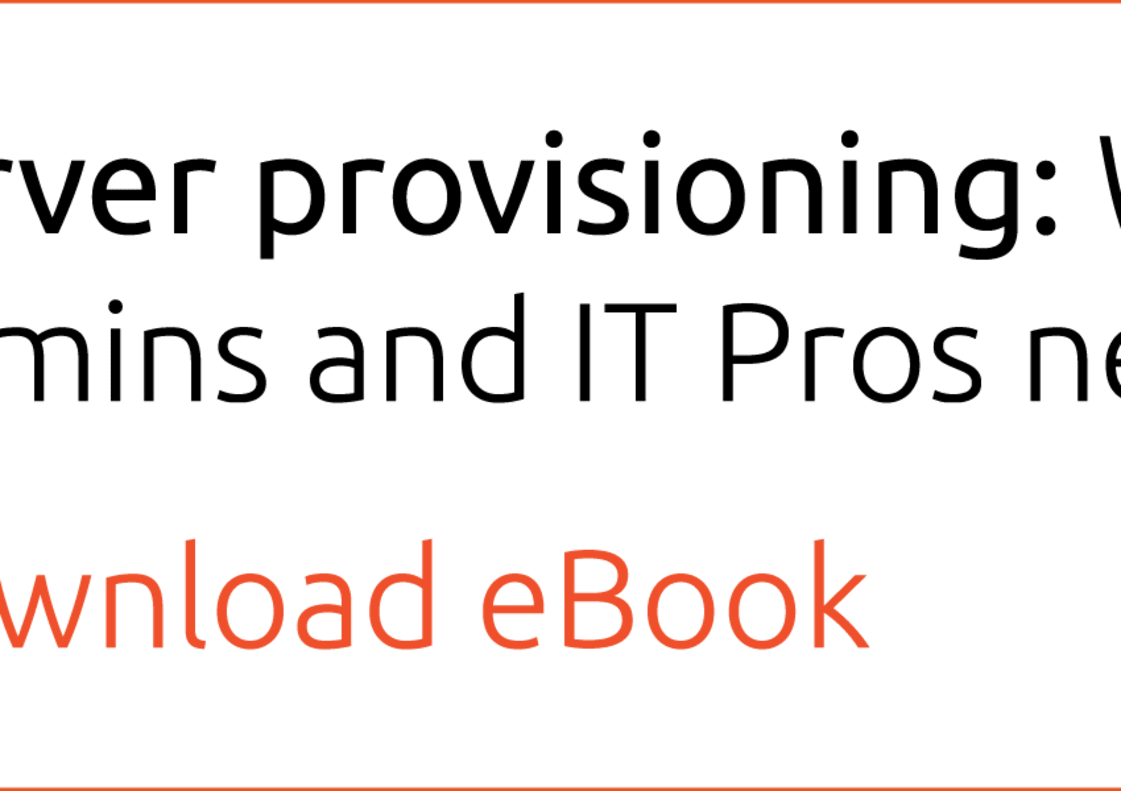Bare metal server provisioning is evolving the HPC market
Canonical
on 27 March 2017
Tags: bare metal , MAAS
In the early days of High Performance Computing (HPC), ‘Big Data’ was just called ‘Data’ and organizations spent millions of dollars to buy mainframes or large data processing/warehousing systems just to gain incremental improvements in the manipulation of information. Today, IT Pros and systems administrators are under more pressure than ever to make the most of these legacy bare metal hardware investments. However, with more and more compute workloads moving to the public cloud, and the natural pressure to do more with less, IT pros are finding it difficult to find balance with existing infrastructure and the new realities of the cloud. Until now, these professionals have not found the balance needed to achieve more efficiency while using what they already have in-house.
Businesses have traditionally made significant investments in hardware. However, as the cloud has disrupted traditional business models, IT Pros needed to find a way to combine the flexibility of the cloud with the power and security of their bare metal servers or internal hardware infrastructure. Canonical’s MAAS (Metal as a Service) solution allows IT organizations to discover, commission, and (re)deploy bare metal servers within most operating system environments like Windows, Linux, etc.. As new services and applications are deployed, MAAS can be used to dynamically re-allocate physical resources to match workload requirements. This means organizations can deploy both virtual and physical machines across multiple architectures and virtual environments, at scale.
MAAS improves the lives of IT Pros!
MAAS was designed to make complex hardware deployments faster, more efficient, and with more flexibility. One of the key areas where MAAS has found significant success is in High Performance Computing (HPC) and Big Data. HPC relies on aggregating computing power to solve large data-centric problems in subjects like banking, healthcare, engineering, business, science, etc. Many large organizations are leveraging MAAS to modernize their OS deployment toolchain (a set of tool integrations that support the development, deployment, operations tasks) and lower server provisioning times.
These organizations found their tools were outdated thereby prohibiting them from deploying large numbers of servers. Server deployments were slow, modular/monolithic, and could not integrate with tools, drivers, and APIs. By deploying MAAS they were able to speedup their server deployment times as well as integrate with their orchestration platform and configuration management tools like Chef, Ansible, and Puppet, or software modeling solutions like Canonical’s Juju.
For example, financial institutions are using MAAS to deploy Windows servers in their data centre during business hours to support applications and employee systems. Once the day is done, they use MAAS to redeploy the data centre server infrastructure to support Ubuntu Servers and perform batch processing and transaction settlement for the day’s activities. In the traditional HPC world, these processes would take days or weeks to perform, but with MAAS, these organizations are improving their efficiency, reduce infrastructure costs by using existing hardware, while giving these institutions the ability to close out the day’s transitions faster and more efficiently thus giving financial executives the ability to spend more time with their families and having bragging rights at cocktail parties.
HPC is just one great use cases for MAAS where companies can recognize immediate value from their bare metal hardware investments. Over the next weeks we will go deeper into the various use cases for MAAS, but in the meantime, we invite you to try MAAS for yourself on any of the major public clouds using Conjure Up.
If you would like to learn more about MAAS or see a demo, contact us directly.
Talk to us today
Interested in running Ubuntu in your organisation?

